Our goal is to provide experiential learning opportunities and cultural expansion for adventurous volunteers while supplying remote communities with much needed supplies and services.
About the Hike for Humanity Program
A fusion of humanitarian fervor and outdoor enthusiasm, ISL’s Hike for Humanity program offers a unique adventure, sending volunteer teams to assist those in greatest need by reaching out to villages farthest from urban advantages. H4H teams bring essential global health, education, ecology, and community enrichment services to the rural underserved, while providing hikers with an incomparable outdoor experience and the personal satisfaction of being involved in meaningful service.
Regardless of background, volunteers are able to receive an invaluable opportunity to traverse the jungle, encounter amazing wildlife, learn about other cultures, and serve remote communities.
Who is right for Hike for Humanity?
ISL’s H4H teams are a great fit for volunteers of all ages and backgrounds, though volunteers must be able to hike at a moderate level, carry a 40-pound pack, sleep in tents, and use primitive latrines.
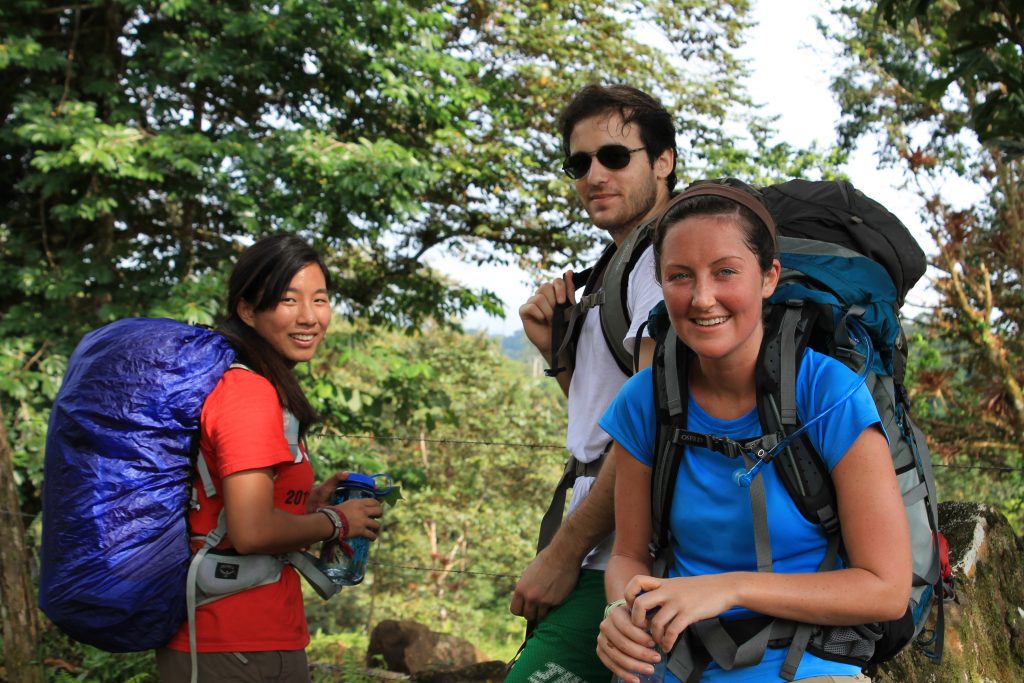
What to Expect
Upon arrival in country, you will be met at the airport by ISL staff. Your team’s first full day will be busy with orientation, learning Spanish terminology and preparing project supplies for the hike. The day will end with a local dance lesson!
Depending on the location of the service communities, you may be out in the jungle 2-4 days before returning to refresh and resupply.
Service activities will vary depending on the type of team you are traveling on as well as the needs of the specific communities you are visiting. Depending on your team’s mission, you may be involved in the following:
- Agricultural projects: Permaculture, aquaculture, organic gardening/farming
- Community enrichment projects: Painting, light construction, community clean up
- Education projects: Teaching ESL, tutoring
- Energy projects: Developing plans for small scale hydro projects, wind and solar generation
- Environmental projects: Reforestation, erosion control
- Global health projects: Performing community health surveys, treating acute health conditions, providing medications,
- planting indigenous medicinal plants, providing basic nutrition instruction
- Play with community children!
Global health teams may:
- Visit homes to assess the needs for health care (community health surveying)
- Evaluate living conditions making connections between lifestyle and health issues
- Bring/distribute educational materials
- Set up and assist in a field clinic staffed by a local, licensed medical professional
- Play with community children!
In addition to exploring the jungle, your team will have opportunities for recreation throughout your ISL experience. You may enjoy shopping for local crafts and exploring geographic treasures such as beaches, volcanoes, rainforests, or caves. Visit the Panama Canal, traverse ruins, tour city centers, or trek through coffee plantations, and have time for other exciting activities such as ziplining or snorkeling!
**See below descriptions for further details on our two Hike for Humanity service countries: Panama & Costa Rica!
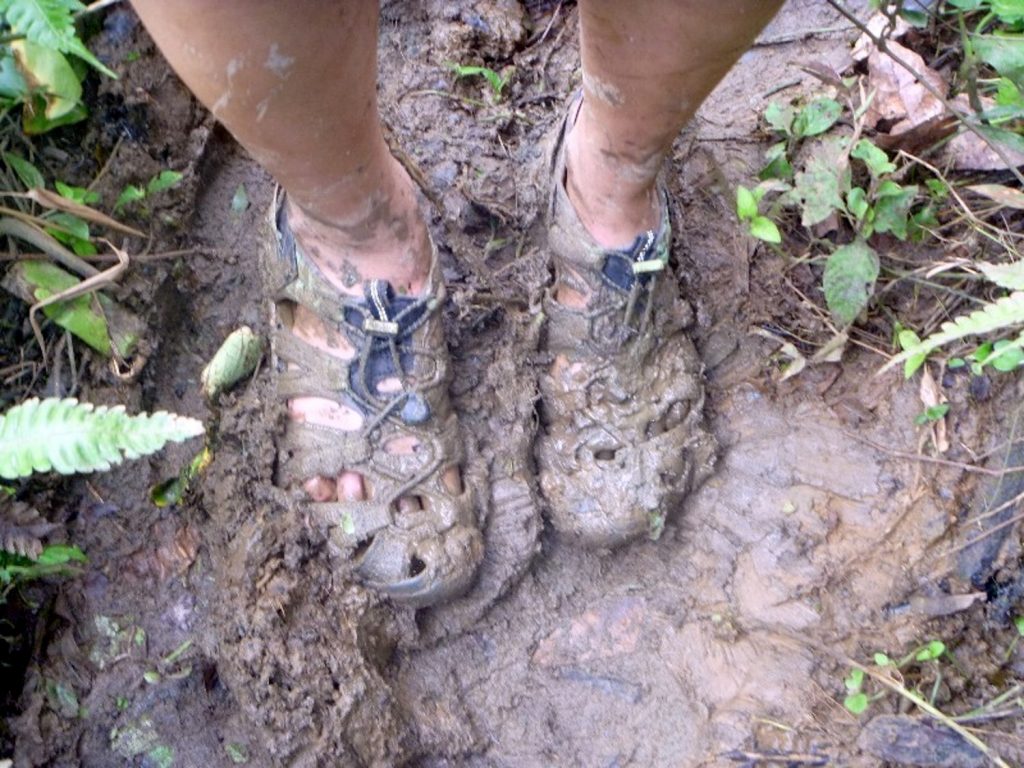
Panama — Bilingue and Girote
There are about 5 indigenous regions located throughout Panama representing circa 450.000 indigenous people (around 14% of the population), mostly living in remote mountain zones.
The Ngobe Bugle people are Panama´s largest indigenous population with approximately 290,000 members and it is considered to be the most isolated. The majority of its inhabitants reside in the Mountains between the province of Veraguas, Chiriqui and Bocas del Toro requiring them to walk several hours to and from town in order to access life’s basics – food, supplies, education, and health services.
Many of them still preserve their language and culture. They have many stories and legends, some of which are written both in Spanish and the Ngobe Bugle language.
The closest health care center from Bilingue and Girote is located in Guabal, a town only reachable by a 3 hour walk. The closest grocery store is in Santa Fe, requiring the 4-hour hike and 1 hour drive in car to access food and basic supplies.
There are several schools around Bilingue and Girote, where teachers teach the subjects in Spanish and Ngobe Bugle language. Most of the population is bilingual (Spanish and Ngobe Bugle) and they are dedicated to farming for their own consumption.
Hike for Humanity (H4H) is a very special ISL program which provides humanitarian services, including health services, to communities with difficult geographical access.
Our adventure begins in Panama City, the capital city of Panama, where we load all of our luggage and medical supplies onto a bus and drive to Santa Fe in Veraguas Province. From there we take a bus to Guabal to start hiking down the mountains. There will be people in Guabal waiting to lead us to Bilingue and Girote.
The trail winds through a dense tropical forest of lush vegetation, including banana, cocoa and other types of trees. We will cross over a river on a “bridge” after a 4 hour hike. The total distance between Guabal and Girote is 5 kilometers (3.11 miles) Girote is 453 meters above the sea level and Bilingue is 255 meters. We arrive four hours later at the indigenous community, where we are received by community leaders and settle into our base camp-either a school or the community’s multipurpose room.
At the shelter you will not have access to WiFi and electricity, showers and latrine toilets are available. Breakfast, lunch and dinner in Bilingue and Girote will be provided but you can pack some granola bars or your favorite snacks.
A very specific packing list will be provided to you prior to your travels to Panama.

Costa Rica — Sinoli
There are about 24 indigenous territories located throughout Costa Rica representing circa 64.000 indigenous people (around 1.7% of the population), mostly living in remote mountain zones.
The Cabécar people are Costa Rica’s largest indigenous population with approximately 10,000 members and it is considered to be the most isolated. The majority of its inhabitants reside deep in the forest in the Talamanca Mountains requiring them to walk several hours to and from town in order to access life’s basics – food, supplies, education, and health services.
Many of them still preserve their language and culture. They have many stories and legends, some of which are written both in Spanish and the Cabécar language.
The closest health care center from Sinoli is located in Grano de Oro, town only reachable by a 4 hour walk and 30 minute drive. The closest grocery store is in Alto Quetzal, requiring the 4-hour hike up to access to food and basic supplies.
There are several schools around Sinoli, where teachers teach the subjects in the Cabécar language. Most of the population is bilingual (Spanish and Cabécar) and they are dedicated to farming for their own consumption.
Hike for Humanity (HFH) is a very special ISL program which provides humanitarian services, including health services, to communities with difficult geographical access.
Our adventure begins in Cartago, the old capital city of Costa Rica, where we load all of our luggage and medical supplies onto a bus and drive to Alto Quetzal in Talamanca Mountain. From there we start hiking down the mountains. There will be people in Alto Quetzal waiting to lead us to Sinoli.
The trail winds through a dense tropical forest of lush vegetation, including banana, cocoa and other types of trees. We will cross over a river on a “cable rope” after a 3 hour hike and continue the hike for another 2 hours. The total distance between Alto Quetzal and Sinoli is 10.8 kilometers (6.7 miles) and the descent is 1,450 meters above the sea level. We arrive five hours later at the indigenous community, where we are received by community leaders and settle into our base camp-either a school or the community’s multipurpose room. A starry night falls and the smell of local food calls us together to enjoy a delicious candlelight dinner cooked over firewood by excellent local cooks.
At the shelter you will have access to WiFi and electricity 110V (powered by a solar battery), as well as showers and toilets. Breakfast, lunch and dinner in Sinoli will be provided but you can pack some granola bars or your favorite snacks.
A very specific packing list will be provided to you prior to your travels to Costa Rica.
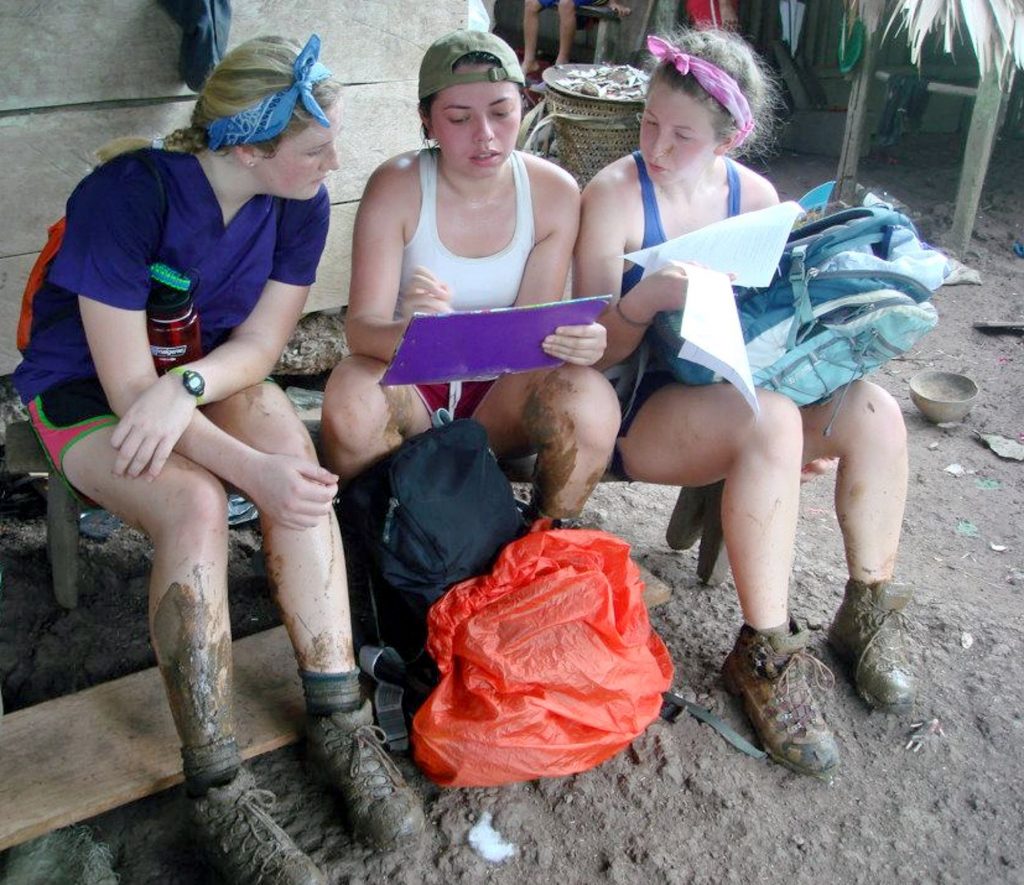
Volunteer Involvement
The level and depth of our volunteer’s service work is at the discretion of the local community members. There are many ways to serve in these remote communities and details of service projects will be provided to volunteers prior to travel based on current needs of the communities you are visiting.
H4H global health teams
ISL collaborates with in-country professionals and local Ministries of Health in order to determine how our volunteers can best impact developing communities. Level of volunteer participation is directly dependent on level of training. For example, each team has the potential for three levels of volunteer involvement: observer, assistant, and practitioner. Pre-health volunteers would fall into the “observer” category in terms of the examination/diagnosis/treatment process, but would be allowed hands on experience with non-invasive procedures such as taking vitals, as determined by local Ministry of Health standards, while a med student might assist in the examination, diagnosis, and treatment process to the degree determined appropriate by local Ministry of Health standards.
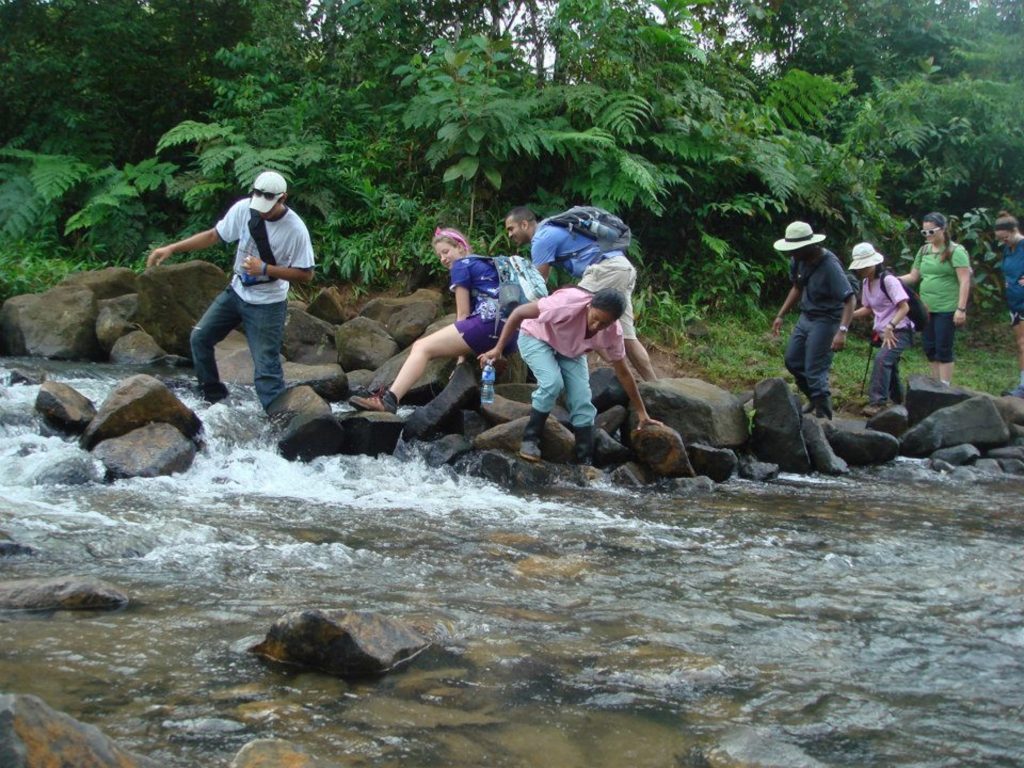
Safety and Respect
ISL prohibits discrimination on the basis of color, national origin, disability, sex, gender identity, religion or any other factor.
Respect of our patients (H4H global health teams)
Patient consent is, of course, an essential pre-requisite for any level of volunteer participation. All patients sign a consent form to be seen by a doctor with students observing – we have their complicit consent to treat prior to their intake and examination.
Our patients are protected from exploitation – we are discreet and respectful. We do NOT under any circumstances take photo of any procedure during a patient’s visit. Furthermore, patient rights must be respected at all times; Patients have the right to refuse treatment.
Respect of local community members
All communities we serve have given explicit consent for ISL Community Enrichment teams to work in their community. They are protected from exploitation – we are discreet and respectful at all times. Please ask permission before taking photos, especially of children.
Volunteer Safety
For the sake of security, ISL volunteers remain together as a team from arrival to departure, and are accompanied by ISL staff at all times.
The safety of our volunteers is our number one priority. ISL has offices in all of the countries that we serve. That means wherever you go, rest assured, we’re there too. All ISL regional staff members are thoroughly screened to ensure the safety of your team’s local interactions and we continuously monitor and address all emerging health and safety issues in each of the countries we operate.
Specific precautions taken by ISL
- ISL teams avoid large, crowded areas like sporting events whenever possible
- We continuously monitor local media and information sources in each of our countries through our on-site staff, and take appropriate actions to avoid areas of concern
- Our on-site staff provide feedback on the local situation in each community we work, and if recommendations are made to change itineraries or programming, we do so immediately
- Our management team relies on the advice of a number of organizations including the U.S. State Department, the World Health Organization and Centers for Disease Control, the Federal Aviation Administration, the National Transportation Safety Board, as well as an international safety and security organization. If conditions exist that may hinder our ability to provide a safe program, we will alter the itinerary and redirect the program to safer regions or provide other alternatives.
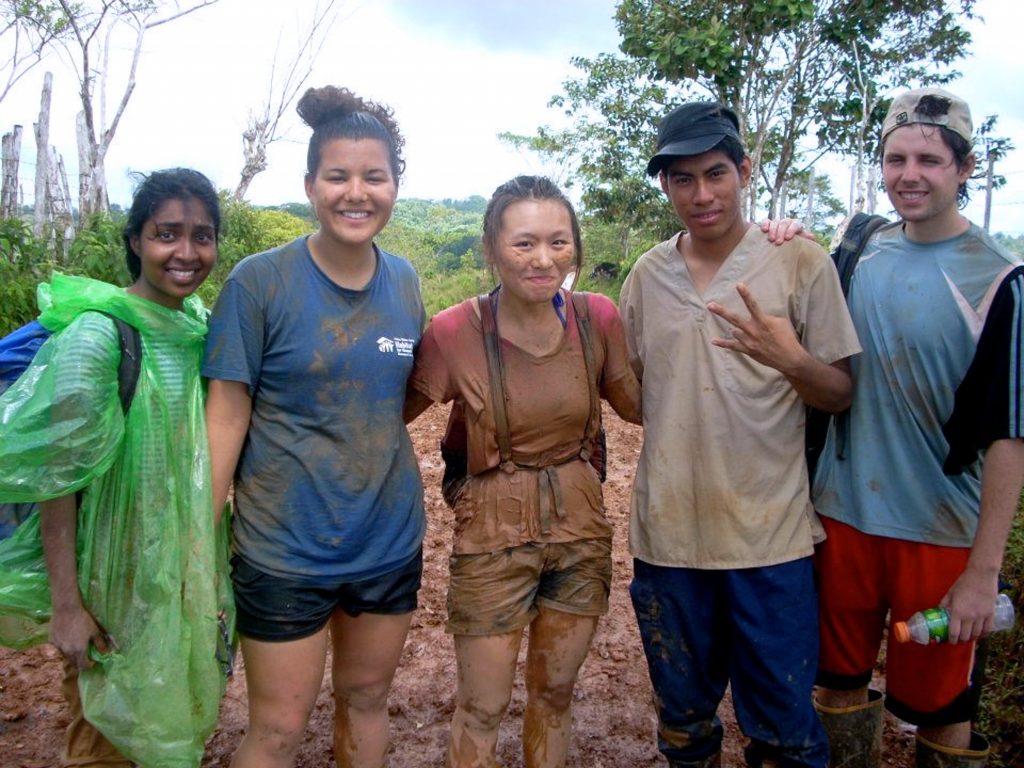
What To Bring
Project supplies and donations of vitamins and oral health supplies are welcomed
A very specific packing list will be provided to all H4H volunteers prior to traveling to Panama or Costa Rica. Here are some of the things you will need:
All H4H teams:
- Lightweight backpack
- Hiking boots (broken in)
- Head lamp
- Insect repellent
- Lightweight sleeping bag
- Rain gear
- Sunblock
- Camel Back, canteen, or water bottle and hydration powder
- Telescoping walking stick (optional)
- Funds sufficient to cover one meal per day, recreation, incidentals, souvenirs and departure tax (where applicable).
- An open-mind
- A sense of adventure
- A heart of service
Additional items for Global Health teams:
- Stethoscope
- Blood pressure cuff
- Otoscope
- Scrubs
- Donations of medications
- Medical supplies (optional)
What ISL Provides
- 24-hour accompaniment by professional, bilingual staff
- Airport pickup/drop off
- All ground transportation
- All lodging
- Most meals
- Drinking water
- Professional project guidance, instruction and supplies
- Cultural tours and a dance class
- Quality experiential learning
- A meaningful glimpse into another culture
- An unforgettable adventure
